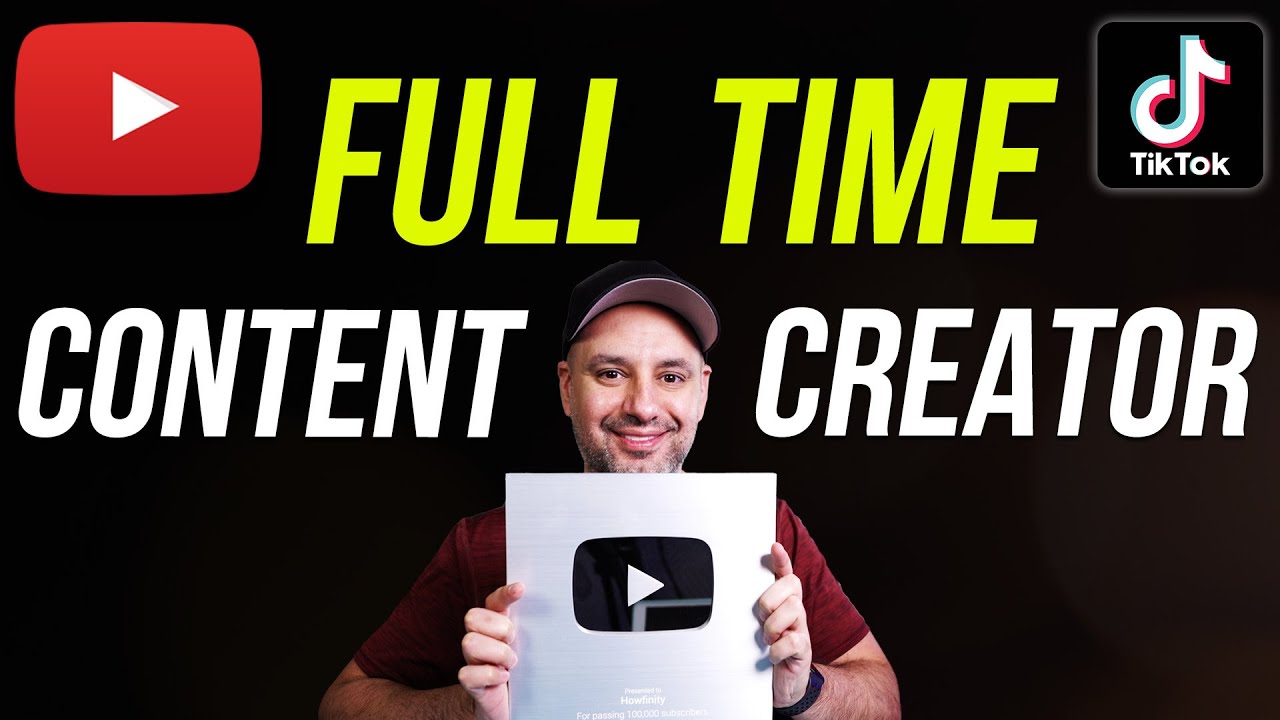In today's digital landscape, content marketinghas become an integral part of successful businessstrategies. It involves creating and distributing valuable, relevant, and consistent contentto attract and engage target audiences. In this article, we will delve into some of the prominent career paths in content marketing, highlighting the key skills required for each role.
As the demand for content marketing continues to grow, so does the need for skilled professionals in the field. From content writers and strategists to social mediamanagers and SEOspecialists, there are numerous careerpaths available for aspiring individuals to explore in the realm of content marketing.
What Is Content Marketing?

What Everyone Must Know About CONTENT MARKETING?
Content marketing is a strategic approach to marketing that involves creating and distributing valuable, relevant, and consistent content to attract and engage a specific target audience. It focuses on delivering information or entertainment that is useful, informative, or entertaining, rather than directly promoting a product or service.
The primary goal of content marketing is to build a relationship with the target audience by providing them with content that meets their needs, addresses their pain points, or entertains them. By delivering high-quality content, businesses aim to establish trust, credibility, and loyalty, ultimately driving profitable customer action.
Content marketing encompasses various forms of content, including blog posts, articles, videos, infographics, social media posts, podcasts, whitepapers, e-books, and more. The content can be created and distributed through a company's owned channels (such as a website or blog) or through external platforms (such as social media or guest posting on other websites).
Effective content marketing involves understanding the target audience's needs and preferences, conducting thorough research, and developing a content strategythat aligns with the organization's goals. It requires a deep understanding of the customer journey and crafting content that guides and nurtures potential customers through the various stages of the buying process.
Why Choose A Career In Content Marketing?

7 Smart Reasons for Choosing Digital Marketing as a Career
Choosing a career in content marketing offers a multitude of compelling reasons. Here are some key advantages that make content marketing an appealing career choice:
- Creativity and Expression -Content marketing provides a platform for unleashing your creativity and expressing yourself through various forms of content. Whether it's crafting engaging articles, producing captivating videos, or developing innovative social media campaigns, content marketing allows you to showcase your creative talents.
- High Demand and Growth -In today's digital age, content has become the lifeblood of businesses. The demand for skilled content marketers is continually increasing as organizations recognize the importance of connecting with their audience through valuable and relevant content. This growth trend in content marketing offers abundant job opportunities and career advancement prospects.
- Diverse Skill Set -Content marketing is a multidisciplinary field that encompasses writing, strategy, data analysis, SEO, social media, and more. By pursuing a career in content marketing, you have the opportunity to develop a versatile skill set that is highly sought after in the digital marketing industry. This breadth of skills allows you to explore various roles and adapt to evolving industry trends.
- Continuous Learning and Adaptability -Content marketing is a dynamic field that constantly evolves with changing consumer behavior, technology advancements, and search enginealgorithms. This necessitates continuous learning and staying updated with industry trends. If you enjoy learning and embracing new challenges, a career in content marketing provides an environment that fosters growth and learning opportunities.
- Impact and Influence -Content marketing offers the ability to make a tangible impact on a brand's success. By creating compelling content, you have the power to shape perceptions, engage audiences, and drive businessgrowth. Your work can contribute to building brand loyalty, increasing conversions, and establishing thought leadership, allowing you to influence the success of organizations and their marketing efforts.
- Flexibility and Remote WorkOptions -Content marketing often allows for flexibility in work arrangements. Many content marketing roles can be performed remotely, offering the freedom to work from anywhere. This flexibility provides a better work-life balance and the potential to create a career that aligns with your desired lifestyle.
- Constantly Evolving Field -Content marketing is not a stagnant field. It continuously adapts to emerging technologies, platforms, and consumer preferences. This means that you'll always have the opportunity to learn new techniques, experiment with innovative strategies, and embrace emerging trends. If you thrive in dynamic environments and enjoy staying ahead of the curve, content marketing offers a stimulating career path.
Top Career Paths In Content Marketing
Content Writer

How To Become A Content Writer
A career as a content writer in the field of content marketing offers an exciting and fulfilling path for individuals passionate about storytelling and communication. Content writers play a vital role in crafting engaging and informative content that captivates the target audience. They possess a strong command of language, impeccable grammar, and the ability to adapt their writing style to different platforms and target demographics.
Content writers conduct thorough research to gather relevant information and stay updated with industry trends, ensuring the content they produce is accurate, credible, and valuable to readers. They collaborate closely with content strategists, SEOspecialists, and marketing teams to align their writing with the organization's goals and target audience.
Attention to detail, creativity, and the ability to meet deadlines are crucial skills for content writers, as they are responsible for delivering high-quality content consistently. They have a deep understanding of the target audience's needs and preferences, allowing them to create content that resonates and connects with readers on a deeper level.
Content writers excel at storytelling, weaving narratives that engage and entertain readers while delivering key messages and promoting products or services subtly. They leverage their writing skills to craft compelling blog posts, articles, social media content, website copy, and other forms of content that drive engagement and build brand awareness.
Additionally, content writers understand the importance of search engine optimization(SEO) and incorporate relevant keywords and best practices to improve content visibility in search engine rankings. They optimize content to strike a balance between user experienceand search engine requirements, ensuring their work reaches a wider audience.
Content Strategist

Web Careers: What Does a Content Strategist Do? | Sparkbox, Building Websites
A career as a content strategist in the field of content marketing is a dynamic and strategic role that focuses on planning, developing, and executing effective content strategies to achieve business objectives. Content strategists play a crucial role in ensuring that the content produced aligns with the overall marketing goalsand resonates with the target audience.
Content strategists begin by conducting thorough market research and audience analysis to understand the needs, preferences, and pain points of the target audience. Based on these insights, they develop a comprehensive content strategy that outlines the type of content to create, the platforms to distribute it on, and the key messages to convey. They work closely with cross-functional teams, such as content writers, designers, and SEO specialists, to ensure that the content is engaging, relevant, and optimized for search engines.
One of the key responsibilities of a content strategist is to establish content guidelines and standards, ensuring consistency and brand voice across all content channels. They develop content calendars and workflows, manage editorial calendars, and oversee the content production process from ideation to publication. Content strategists also track and analyze the performance of content using data and analytics tools, making data-driven decisions to refine and optimize the content strategy.
Social Media Manager

How To Become A Social Media Manager - Beginners Guide
A career as a social media manager in the field of content marketing offers an exciting and dynamic role that focuses on leveraging social media platforms to engage and connect with target audiences. Social media managers play a vital role in developing and implementing social media strategies that align with the overall content marketing objectives of an organization.
Social media managers are responsible for creating and curating compelling content specifically tailored for various social media platforms, such as Facebook, Instagram, Twitter, LinkedIn, and YouTube. They have a deep understanding of each platform's unique features, algorithms, and best practices, allowing them to optimize content for maximum visibility and engagement.
One of the key responsibilities of a social media manager is to develop a content calendar and scheduling strategy to ensure consistent and timely delivery of content across social media platforms. They engage with the audience by responding to comments, messages, and inquiries promptly, fostering meaningful interactions and building relationships.
Social media managers monitor and analyze social media performance metrics, such as reach, engagement, and conversions, using analytics tools. They leverage these insights to refine social media strategies, identify trends, and make data-driven decisions to optimize content and improve results.
Staying updated with the latest social media trends, algorithm changes, and emerging platforms is essential for a social media manager. They need to be aware of popular hashtags, viral content, and current eventsto leverage timely and relevant opportunities for engaging with the audience.
Effective communication and collaboration skills are crucial for social media managers as they work closely with content creators, designers, and other stakeholders to ensure a cohesive and consistent brand presence across social media platforms. They also stay informed about industry regulations, legal considerations, and ethical guidelines when managing social media accounts.
SEO Specialist

What SEO Specialists Do for Businesses | WebFX Digital Marketing
A career as an SEO specialist in the field of content marketing offers an exciting and crucial role in driving organic visibility and traffic to websites. SEO specialists play a vital role in optimizing content to ensure it ranks well in search engine results and attracts targeted organic traffic.
SEO specialists are responsible for conducting thorough keyword research to identify relevant and high-traffic keywords that align with the organization's content goals. They optimize website content, including blog posts, articles, and landing pages, by strategically incorporating keywords, meta tags, and headers. They also focus on enhancing the overall user experience and ensuring content is easily accessible and navigable.
One of the key responsibilities of an SEO specialist is to optimize on-page elements, such as title tags, meta descriptions, and URL structures, to improve search engine visibility and click-through rates. They work closely with content writers and editors to ensure the content meets SEO best practices without compromising its quality or readability.
SEO specialists stay updated with the latest search engine algorithm changes, industry trends, and SEO tools. They analyze website performance metrics, such as organic traffic, rankings, and conversion rates, using analytics platforms to identify areas for improvement and make data-driven decisions to optimize content strategies.
In addition to on-page optimization, SEO specialists may also engage in off-page activities, such as link buildingand outreach, to enhance the website's authority and credibility. They collaborate with content creators and marketing teams to develop content that attracts high-quality backlinksand increases the website's visibility across the web.
Strong analytical and problem-solving skills are crucial for SEO specialists as they dive into data, identify patterns, and troubleshoot issues that may hinder website performance. They continuously monitor and evaluate keyword rankings, organic traffic trends, and competitor strategies to identify opportunities and adjust content strategies accordingly.
Content Marketing Manager

What Does a CONTENT MARKETING MANAGER Do? Content Marketing Manager Responsibilities & Skills
A career as a content marketing manager is a strategic and leadershiprole that involves overseeing and driving the content marketing initiatives of an organization. Content marketing managers play a crucial role in developing and executing content strategies that align with the company's overall marketing objectives.
Content marketing managers are responsible for developing a comprehensive content marketing planthat outlines the goals, target audience, content themes, channels, and distribution strategies. They collaborate with cross-functional teams, such as content writers, designers, SEO specialists, and social media managers, to ensure cohesive and effective content creationand distribution.
One of the key responsibilities of a content marketing manager is to establish brand messaging and tone of voice guidelines to ensure consistent and cohesive communication across all content channels. They ensure that the content produced reflects the organization's values, resonates with the target audience, and supports the overall brand strategy.
Content marketing managers are skilled in identifying content gaps and opportunities through market research and competitor analysis. They conduct audience research to understand customer needs, pain points, and preferences, leveraging these insights to develop compelling content that addresses the target audience's needs and interests.
Content marketing managers oversee the creation and distribution of various content formats, such as blog posts, articles, videos, infographics, e-books, and social media content. They manage content calendars, and editorial workflows, and ensure content is delivered on time and aligned with marketing campaigns and initiatives.
Analytical skills are crucial for content marketing managers as they monitor and measure the performance of content using data and analytics tools. They track key metrics such as engagement, conversions, and ROI, and use insights to optimize content strategies, identify trends, and make data-driven decisions.
Content marketing managers also stay updated with industry trends, emerging technologies, and content marketing best practices. They continually seek opportunities to innovate, experiment with new content formats, and leverage emerging platforms to reach and engage the target audience effectively.
Video Content Creator

How To Become a Content Creator - Complete Beginner's Guide
A career as a video content creator in the field of content marketing offers an exciting and dynamic role that involves creating compelling and engaging videos to connect with target audiences. Video content creators play a vital role in developing video strategies, producing high-quality videos, and leveraging visual storytelling to promote products, services, or brand messages.
Video content creators possess a range of skills, including video production, editing, scriptwriting, and storytelling. They have a deep understanding of different video formats, such as explainer videos, tutorials, interviews, product demos, and brand stories, and can adapt their creative approach based on the target audience and marketing objectives.
One of the key responsibilities of a video content creator is to collaborate with content strategists, marketers, and other stakeholders to develop video concepts that align with the overall content marketing strategy. They ensure that videos are in line with brand guidelines, reflect the organization's values, and effectively convey key messages to the target audience.
Video content creators use their technical expertise to handle all aspects of video production, including planning, shooting, lighting, sound, and editing. They may work with videographers, actors, or voice-over artists to bring the video concepts to life. Additionally, they pay attention to post-production processes, such as color grading, sound mixing, and adding graphics or animations, to enhance the overall video quality.
Creativity and storytelling skills are essential for video content creators as they craft narratives that captivate and engage viewers. They focus on creating visually appealing and emotionally resonant videos that leave a lasting impression on the target audience.
Video content creators also stay updated with video trends, emerging technologies, and social media platforms to optimize video content for maximum reach and engagement. They may experiment with different video distribution channels, such as YouTube, social media platforms, or website embedding, to ensure videos are easily discoverable by the target audience.
Analytical skills are crucial for video content creators as they monitor and analyze video performance metrics, such as views, engagement, and conversion rates. They use insights from analytics platforms to refine video strategies, identify content preferences, and optimize future video productions.
Content Analyst

What Does a Data Analyst Actually Do?
A career as a content analyst or data analyst in the field of content marketing offers a unique and analytical role that involves extracting insights from data to optimize content strategies and drive results. Content analysts play a crucial role in understanding audience behavior, measuring content performance, and making data-driven recommendations to enhance content marketing initiatives.
Content analysts are responsible for collecting and analyzing data related to content marketing efforts, such as website traffic, engagement metrics, social media performance, and conversion rates. They use a variety of analytics tools and techniques to identify trends, patterns, and opportunities for improvement.
One of the key responsibilities of a content analyst is to conduct an in-depth audience analysis to understand the target audience's preferences, interests, and behavior. They leverage data to segment the audience and tailor content strategies accordingly, ensuring that content resonates with the intended audience and drives engagement.
Content analysts monitor and measure the performance of different content channels, formats, and campaigns. They track key metrics, such as click-through rates, time spent on a page, bounce rates, and conversion rates, to evaluate content effectiveness and identify areas for optimization.
Using data-driven insights, content analysts provide recommendations to content strategists, writers, and other stakeholders to optimize content production, distribution, and promotion strategies. They identify content gaps, uncover opportunities for new content ideas, and suggest improvements to enhance content visibility, engagement, and conversion.
Analytical skills are essential for content analysts as they work with large data sets, perform statistical analysis, and draw meaningful conclusions from data. They have a strong understanding of data visualization techniques to present findings in a clear and actionable manner.
Content analysts stay updated with industry trends, emerging technologies, and best practices in content marketing analytics. They continuously explore new tools and methodologies to enhance data analysis capabilities and stay ahead of the curve.
How To Get Into Content Marketing?

How can you get into content marketing?
Getting into content marketing requires a combination of skills, knowledge, and practical experience. Here are some steps to help you embark on a career in content marketing:
- Develop Your Writing Skills -Strong writing skills are essential for content marketing. Practice writing regularly to improve your grammar, vocabulary, and storytelling abilities. Explore different writing styles and formats, such as blog posts, social media content, and email marketing.
- Acquire Marketing Knowledge -Familiarize yourself with the fundamentals of marketing. Understand target audience segmentation, brandingprinciples, marketing strategies, and customer behavior. This knowledge will provide a foundation for effective content marketing.
- Gain Industry Knowledge -Stay updated with industry trends, content marketing best practices, and emerging platforms. Follow influential content marketers, read industry blogs, attend webinars, and participate in relevant online communities to expand your knowledge base.
- Obtain Relevant Education -While not mandatory, pursuing a degree or certification in marketing, communications, journalism, or a related field can enhance your credibility. Look for programs that offer courses specific to content marketing or digital marketing.
- Build a Portfolio - Create a portfolio showcasing your content marketing skills. Develop a collection of writing samples, case studies, and examples of social media campaigns or other content you have created. If you lack professional experience, consider creating your own blog or contributing to online publications to demonstrate your expertise.
- Network and Collaborate -Connect with other professionals in the content marketing field. Attend industry events, join professional associations, and engage in online communities. Collaborate with others on projects to gain valuable experience and expand your network.
- Gain Practical Experience -Seek internships, freelance opportunities, or entry-level positions to gain hands-on experience in content marketing. This practical experience will help you understand the industry, refine your skills, and build a track record of successful content marketing projects.
- Specialize and Develop Skills -As you gain experience, consider specializing in a specific area of content marketing, such as SEO, social media, or video production. Continually develop your skills in your chosen area and stay updated with the latest tools and techniques.
- Stay Analytical and Data-Driven -Content marketing relies on data and analytics to measure success and make informed decisions. Familiarize yourself with tools like Google Analytics, social media analytics, and SEO analytics. Learn how tointerpret data to optimize content strategies and demonstrate results.
- Continual Learning -Content marketing is a field that is constantly evolving. Stay curious and invest in ongoing learning. Attend workshops, online courses, and industry conferences to stay ahead of industry trends and expand your knowledge.
People Also Ask
What Skills Do You Need For Content Marketing?
The skills required for content marketing include strong writing and communication abilities, creativity, research skills, an understanding of SEO principles, data analysis, and proficiency with content management systems and marketing tools.
What Qualifications Do You Need For A Content Marketing Job?
While there is no specific degree required for a content marketing job, a bachelor's degree in marketing, communications, journalism, or a related field can be beneficial.
What Are The Career Prospects In Content Marketing?
Career prospects in content marketing are promising, as businesses increasingly recognize the value of engaging and informative content. With the right skills and experience, you can pursue roles such as content writer, content strategist, social media manager, SEO specialist, content marketing manager, video content creator, or content analyst.
Conclusion
The world of content marketing offers a vast array of career opportunities for individuals passionate about creativity, strategy, and data analysis. To thrive in the field of content marketing, it is essential to continually enhance your skills, stay up-to-date with industry trends, and adapt to the ever-evolving digital landscape.
By leveraging your unique talents and combining them with a solid understanding of your target audience, you can forge a rewarding career in content marketing, where your creativity and strategic thinking can make a significant impact.